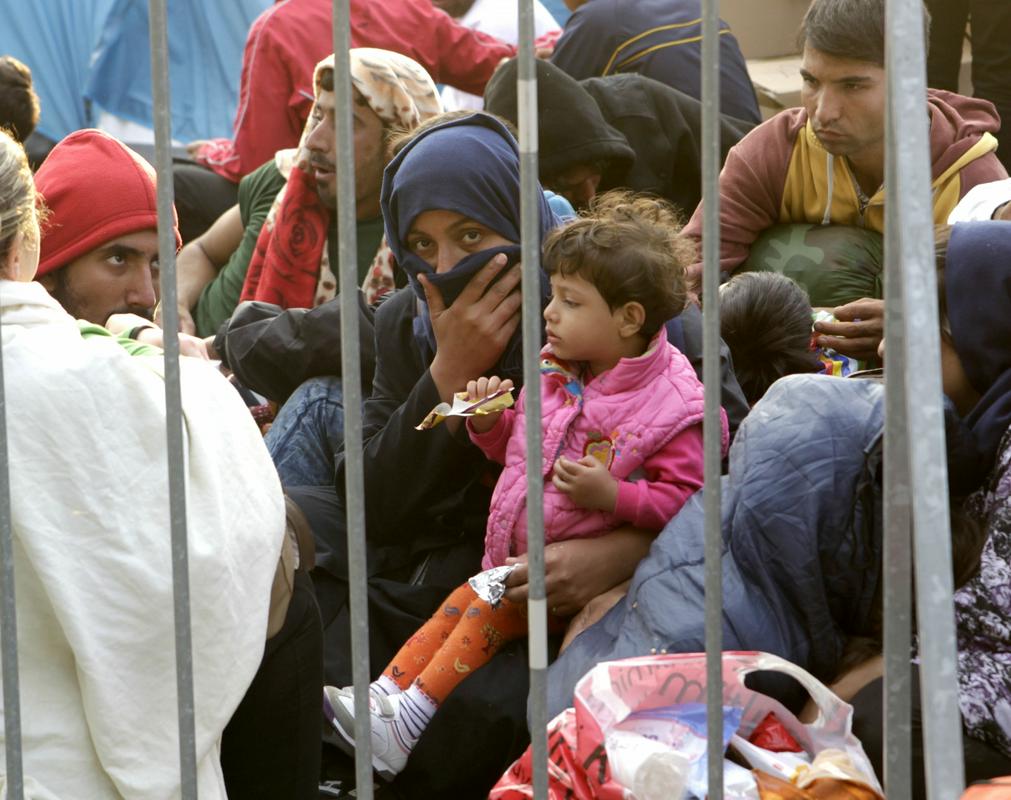
During the recent visit of the President of the Republic Borut Pahor in Prague an agreement was made that the Czech Republic would sent the fourth contingent of their policemen as aid to the Slovenian police. Some of their colleagues who had already returned from their mission to Slovenia are causing problems for the Czech Police with their statements in public about what is going on in Slovenia.
In the beginning of February the Czech policeman Martin Herzan who was stationed at the Slovenian-Croatian border in the end of last year said for the Czech daily newspaper Pravo that his team had uncovered dozens of radical Islam fighters, and that they had confiscated several kilograms of weapons per day. The Slovenian police had supposedly let into the European Union also those migrants who had had on their mobile phones videos of torture and killing of people.
The head of the Czech police Tomas Tuhy denied Herzan's allegations and announced a disciplinary procedure against him, saying that policemen are not allowed to disclose to media information which cannot be proved.
The policeman David Predota who had led the Czech policemen at the Slovenian-Croatian border and who was decorated by President Pahor at the occasion of the President’s visit to Prague among other things said that they had confiscated suspicious object and weapons from migrants, and handed it to the Slovenian colleagues. Yet the potential weapons confiscated from migrants consisted mostly of razorblades. Some more weapons had been found, but never in larger quantities.
General Police Directorate: All migrants were checked
The answer of the General Police Directorate regarding the statements of the Czech policeman is that every migrant entering Slovenia goes through a check based on certain indicators, and those which are by those indicators considered as individuals who according to certain standards might be terrorist, potential fighters, or other kind of extremists, go through additional procedures.
"Additional safety checks include, besides the registration procedure, a number of other activities from safety check up, conversations, gathering of information on persons they had been travelling with, to verification of certain circumstances detectives and policemen had noticed at those procedures. Several tens of such persons who had been excluded based on the mentioned indicators under suspicion that they had possibly participated in armed conflicts went through additional checks, but in no cases our suspicions had been confirmed, or any other suspicion connected with terrorism," General Police Directorate explained for MMC.
"No conditions whatsoever have been noticed which would demand restrictive measures (suspicion of a criminal act), but we did inform the countries into which those individual were heading," they explained and emphasized that until this moment no weapons, explosive device or similar objects modified for the purpose of attack have been found on any of the migrants.
At the safety check policemen temporarily confiscate different object, e.g. lighters, scissors, razorblades, knives, bottle openers… As a rule the knives are small-sized, intended for preparation of food, General Police Directorate assures.
As far as recordings of torture and killing, the policemen explain that migrants only rarely possess printed photos which might be used in further procedure. "Based on the Article 219.a of the Criminal Procedure Act, telephones and other electronic data carriers can be adequately searched, and the needed proofs secured. There must be valid reasons to suspect a criminal act which is officially prosecuted. Detailed conversations with a number of migrants in possession of such photographs in mobile phones showed that people save such photos in order to show the world the atrocities happening in their countries. They wish to make the world see the brutality of terrorists, and substantiate their need to flee from their homes and seek shelter in other countries," the representative of the General Police Directorate explains the controversial video material.
Gregor Cerar; Translated by G. K.

































































